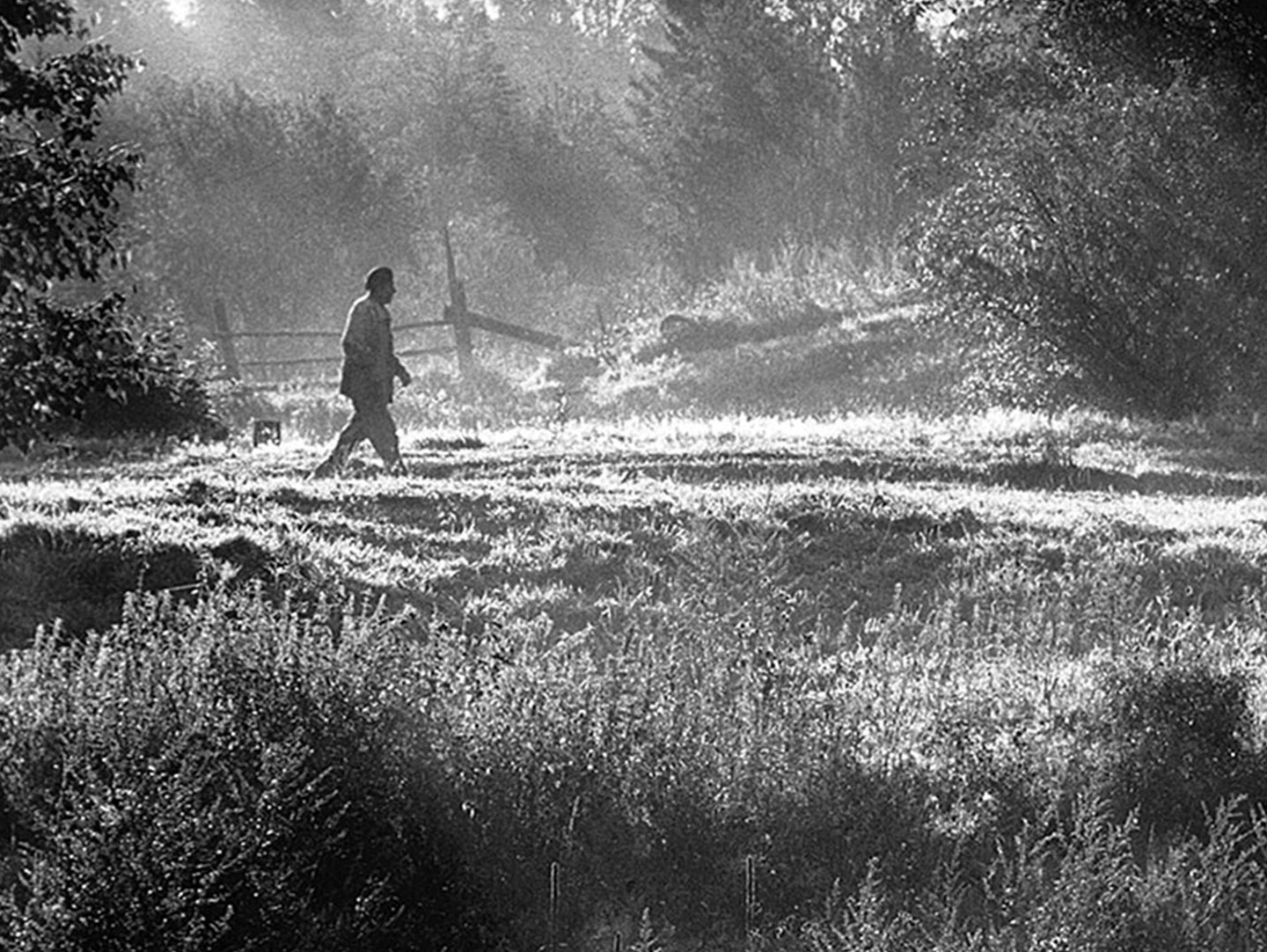
EN
“His black-and-white documentaries (Settlement, Portrait, The Letter) give the impression of being shot in the beginning of the 20th century by a contemporary filmmaker, who looks back in time to explore the very origins of cinema. He observes the reality as if the cinema has just emerged from photography and has not yet been “corrupted” by literature, theater, music and nor even by montage. As if cinema has not yet become cinema. That is another side of Loznitsa’s “archeology of vision”, which resonates with his purely archeological found-footage films (The Event, Revue, Blockade) and also with his fundamental preoccupation with the past.
Settlement, his documentary on the rural life of a remote Russian village, even looks like a film found in the early XX century, as its scratched 35mm black-and-white texture and faded, misty colors perfectly match with the archaic lifestyle of the peasants, which has not changed since XIX century. In the similar manner the characters of The Letter, patients of the forgotten and abandoned asylum deep in the Russian countryside, are filmed as shadows, whose bodies are hardly visible and are reduced to silhouettes as the only traces of their ghostly presence. Loznitsa provides a double distance, or double abstraction: not only he depicts the present as a never-ending, eternal past, but he also films it in the style of that ephemeral, mythical past, which can be attributed to the early cinema and even to the pictorialism which preceded the invention of a film medium. Not only the space is static there, the time is static too.”
Evgeny Gusyatinskiy1
- 1Evgeny Gusyatinskiy, “Vertigo of Time,” Sabzian, 11 December 2024.
FR
« L’oeuvre de Loznitsa développe, par longues séquences alternées entre les travaux villageois et la vie à la colonie, par des scènes lyriques ou burlesques, une approche en crescendo d’un monde marqué par l’exclusion et malheur. Elle se termine par une série de portraits magnifiques. Visages burinés comme des écorces d’arbres. Regards intelligents, lucides, attentifs à l’autre. Sourires éclairés du dedans. Humanité souffrante. Dignité. »
Serge Meurant1
« Lorsqu’on regarde le film, on ressent une sorte d’autodestruction. C’était d’ailleurs ma première intention de montrer cela, en débutant ce film. Ensuite, celui-ci est devenu beaucoup plus complexe.
Je ne voulais pas du tout filmer des expressions de l’anormalité.
C’est ce qui explique que d’abord j’ai filmé ces gens de loin, avant de m’en approcher peu à peu.
Afin que cela ne produise pas un choc pour le spectateur qui l’écarterait de ces gens. Je ne voulais pas que le spectateur les considère comme des personnes anormales. Je voulais, au contraire, que celui-ci soit attiré vers eux par le film. »
Sergei Loznitsa en conversation avec Serge Meurant2

